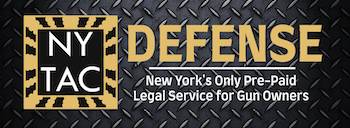Representation.
Right to Counsel Post-Arraignment
If you have been arrested, charged with a crime in New York, and you have been arraigned or had formal charges instituted against you the police no longer have a right to question you without the presence of your lawyer. Any evidence or statemebnts obtained in violation of this rule must be suppressed.
If you believe the police have questioned you illegally, without the presence of your lawyer, call our experienced criminal defense attorneys today.
Call 877-377-8666 Today!
The Sixth Amendment right to counsel protects you from interrogation by the police after the institution of criminal charges. Confessions cannot be extracted, beaten, or coerced out of you by the police while you are in jail awaiting trial. Our New York Criminal attorneys can help throw out evidence obtained by the police from questioning you without your attorney present, after arraignment or the institution of formal charges.
A common tactic of the police and prosecutor’s office is to place confidential informants, more colloquially known as rats, in the jail system to gather evidence against other criminal defendants in exchange for reduced charges. These confidential informants are agents of the police and, while inside a New York jail, after the institution of charges, these confidential informants are prohibited from questioning you or eliciting a confession from a you. On the other hand, if an informant were to overhear what would constitute a confession, that evidence may be admissible. Therefore, it is inadvisable to ever discuss any potentially incriminating evidence with fellow inmates while in jail. Any person who you are discussing your charges with is a potential informant.
The following hypothetical scenario shows how the police may violate someone’s Sixth Amendment right to counsel after the institution of criminal charges. Charlie is arrested for burglary. The police arrested Charlie based on eyewitness testimony that he was carrying a large sack near the crime scene right after the burglary occurred. Charlie maintains that this large sack was just kitty litter for his ten cats.
Charlie was arrested at his favorite bar while he was enjoying an adult beverage with his friends, Charlie, Dennis, Mac, and Dee. Frank tells Charlie to get a lawyer and not say anything to the police. Charlie wisely listens to Frank’s advice. The police do not interrogate Charlie and let him sit in his jail cell until he is arraigned the next day.
After arraignment, a familiar looking inmate is brought to Charlie’s cell. Charlie cannot quite make out where he knows the other inmate from, but the inmate seems uncommonly friendly for someone who was just jailed. The other inmate asks Charlie what he did to get locked up. Charlie, not wanting to seem vulnerable, quickly makes up a lie. He says that he is a successful cat burglar and he got caught leaving a burglary with all the loot. The next day Charlie has a new inmate who is much less friendly and does not talk to Charlie.
Later, at trial, the prosecution attempts to introduce evidence of Charlie’s jailhouse confession. Police Officer McPoyle is called to the stand and testifies that he was sent into Charlie’s jail cell to see if he could convince Charlie to confess to the burglary. Officer McPoyle says that he witnessed and recorded Charlie’s confession. Charlie recognizes Officer McPoyle as one of the police officers that was there when he was arrested. Charlie’s lawyer quickly moves to suppress the evidence and the judge grants the motion. The judge explains that the prosecution and police violated Charlie’s Sixth Amendment right to counsel after the institution of charges.
If the police have questioned you without your attorney present after the institution of criminal charges call our experienced New York Criminal Attorneys today. Any evidence that has been obtained in violation of the Sixth Amendment may be challenged in court. Call our office today for a free consultation.

















